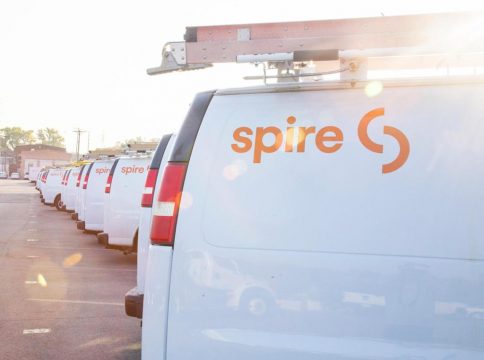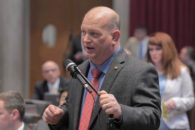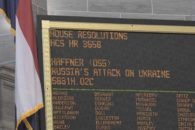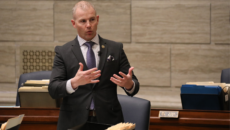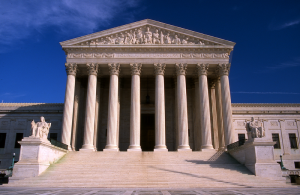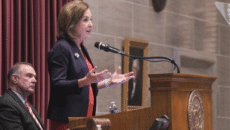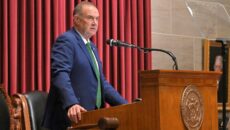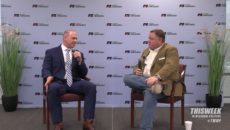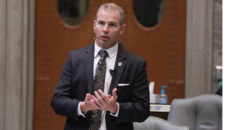The Spire STL Pipeline is pleading with the Federal Energy Regulatory Commission (FERC) to allow it to continue providing natural gas service to the St. Louis area.
FERC granted the project a certificate of convenience and necessity (CCN) in 2018, giving the green light for the construction and operation of the 65-mile interstate pipeline. Though the pipeline began providing service the following year, three judges with the U.S Court of Appeals for the District of Columbia vacated the approval last month after a lawsuit, remanding the issue back to FERC.
The pipeline filed an application for a temporary emergency certificate this week, hoping to allow the pipeline to remain active while the commission reconsiders its order.
Spire argued its ability to provide natural gas service to the St. Louis region would be heavily constrained if the pipeline was taken out of service, a change that could result in interruptions during the winter and loss of energy for 175,000-400,000 customers in the region. The gap in service could last 100 days or longer given fluctuations in the natural gas market.
“The Spire STL Pipeline has become a significant source of natural gas supply for the St. Louis metropolitan area, and if STL Pipeline is shut down now, access to natural gas supply cannot be replaced based on current market conditions,” said Scott Smith, president of the Spire STL Pipeline. “Losing the STL Pipeline would have a detrimental impact on the health, safety, property, and economic prosperity of the St. Louis region.”
Smith said the project was committed to working with FERC to complete its review and ensure customers continued to receive service during the winter months.
Spire was among the companies presenting their plans to mitigate the impact of February’s cold snap on customers’ bills at a Missouri Public Service Commission (PSC) workshop in April, hoping to spread the resulting rate increases out over the next decade. Spire President Scott Carter said the overall impact would be a 25 percent rate increase for the western part of the state while the eastern side would see a 15 percent hike due to the pipeline. Without the pipeline in place, he speculated the increase could have totaled more than $300 million.
While Missouri avoided the mass outages that plagued Texas during the storm, Smith said removing a part of the network could lead to similar death and destruction if mass outages were to occur without interstate backup.
The lawsuit was filed on behalf of the Environmental Defense Fund (EDF), which argued the commission failed to prove the pipeline’s benefits would outweigh any adverse effects. Spire has opposed the argument, pointing to the commission’s 18-month consideration before signing off on the project.
FERC is now chaired by Richard Glick, who voted against the project’s approval in 2018. Glick took a similar stance to EDF’s at the time, an opinion Smith hoped to see change as the commission reconsiders the project.
Various groups are calling on FERC to review its pipeline policies after the landmark court decision, a rare revocation for a project already in operation. Environmental organizations and several Democratic state attorneys general are among the groups calling on the commission to consider updating its review standards, which were last altered in 1999.

